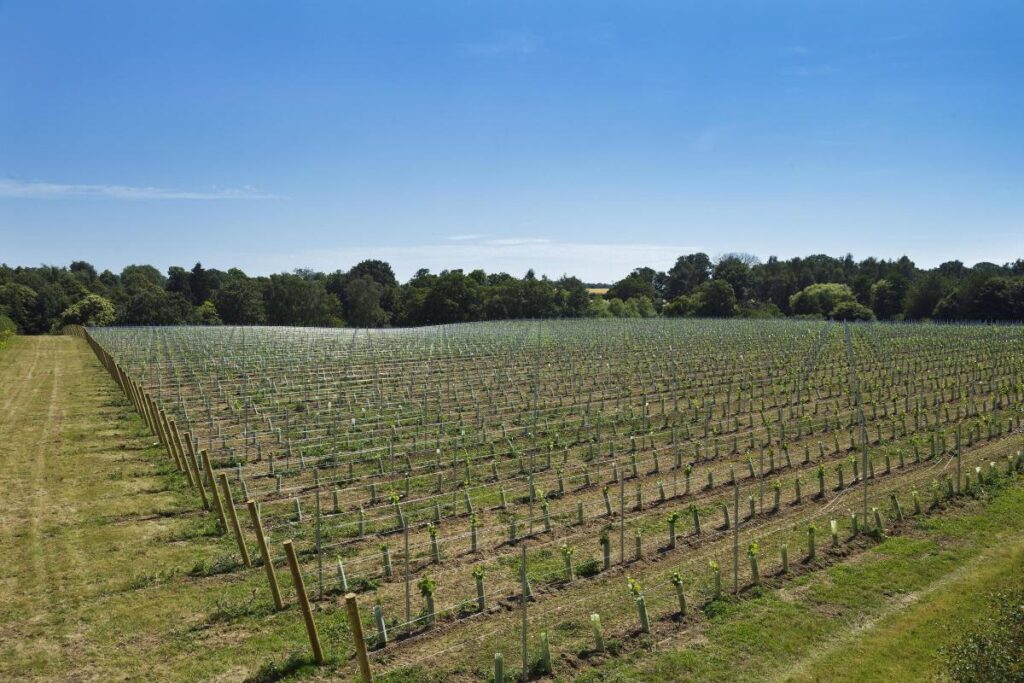Savills' William Hargreaves discusses why vineyards are changing the rural landscape.
When you think of quality wine, you might naturally think of French Champagne, Italian Sauvignon or Spanish Rioja. However, excellent wines are also being produced closer to home, with several English wines – including those from Suffolk, Essex and Norfolk – honoured at this year’s Decanter World Wine Awards.
The UK wine industry is booming. According to WineGB, the industry achieved a record grape harvest in 2023 – with an average production of 9.6 tonnes per hectare, equivalent to around 21 million bottles of wine.
An increasingly temperate climate, coupled with advances in suitable grape varieties and winemaking techniques, has paved the way for the UK to become a serious player in the global wine industry.
William Hargreaves, who leads Savills' rural agency team in Suffolk and Cambridgeshire (Image: RMG Photography)
Vineyards and wineries serve a multifaceted function – they contribute to rural economies, tourism and community interaction, as well as providing a platform for education, promoting sustainable practices and fostering a sense of community.
WineGB said that in 2023, 1.5 million visits to UK vineyards will be recorded. This was a significant 55% increase on the previous year and provides an exceptional opportunity for diversification and expansion.
By providing a range of experiences such as wine tasting, guided tours, local or artisan shopping opportunities, and on-site accommodation, vineyards can greatly enhance the overall visitor experience and create local jobs.
These businesses can further benefit by offering venue rental services for events and gatherings.
Dewlands Farm in Higham, on the Suffolk/Essex border, is for sale with Savills and Strutt and Parker (Image: Chris Rawlings)
Furthermore, by hosting open days and events, they foster community bonds – allowing visitors to appreciate the beautiful landscape and engage with nature. Dewlands Farm in Higham, on the Suffolk/Essex border, offers such an opportunity.
The property is on the market with Savills, Strutt and Parker at a guide price of £5.25 million and the 225-acre estate includes a Grade II listed farm, Grade I equestrian facilities and a 12-acre vineyard growing 18,450 grapevines.
A new packing plant less than a half mile away in Holton St. Mary opens up the possibility not only for grapes to be sold as crops, but also for a potential buyer to become a producer themselves.
So let’s raise our glasses to the success of British wine and the social value these vines bring to the countryside. It’s not just a drink, it’s a testament to the resilience and innovation of the UK’s viticulture industry.
For advice on the rural sector in Suffolk, contact William Hargreaves at Savills on 01473 234802 or email WHargreaves@savills.com


